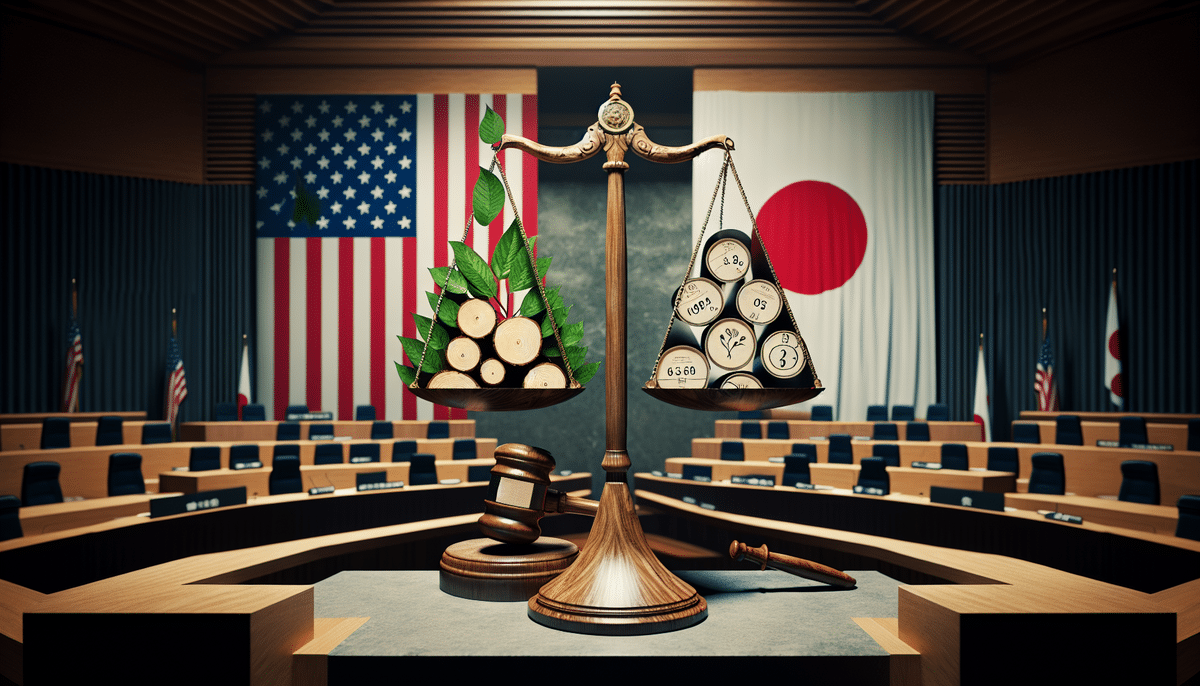Overview of the Legal Battle Between Oji Holdings Corporation and Georgia-Pacific
In the competitive landscape of paper manufacturing, two industry giants, Oji Holdings Corporation and Georgia-Pacific, have been engaged in a significant legal dispute since 2015. This lawsuit, centered around patent infringement allegations, has drawn attention from industry experts, government officials, and the public. This article delves into the histories of both companies, the intricacies of their legal confrontation, the broader context of the paper industry, and the potential ramifications for stakeholders involved.
Company Histories
Oji Holdings Corporation
Oji Holdings Corporation is a renowned Japanese company established in 1873, specializing in paper manufacturing. With over 300 subsidiaries worldwide, Oji is one of the largest paper product manufacturers globally. The company's diverse product range includes paperboards, corrugated containers, and various types of paper, catering to a wide array of industries.
Georgia-Pacific
Georgia-Pacific, founded in 1927 in the United States, initially focused on lumber and plywood production before expanding into the paper industry. Today, Georgia-Pacific is a leading producer of tissue, packaging, communication papers, and pulp. The company operates numerous facilities across North America and is a significant player in the global paper market.
The Legal Dispute
Background of the Lawsuit
The legal confrontation began in 2015 when Oji Holdings Corporation filed a lawsuit against Georgia-Pacific for patent infringement. Oji alleges that Georgia-Pacific utilized its patented technology for reducing pollutant emissions during the paper manufacturing process without proper authorization. This claim highlights the critical role of intellectual property (IP) in maintaining competitive advantage within the industry.
Claims and Defenses
Oji Holdings Corporation asserts that Georgia-Pacific's use of the patented emission-reducing technology has led to significant financial losses for Oji. In response, Georgia-Pacific denies these allegations, maintaining that it employs proprietary technology developed independently and does not infringe upon Oji's patents. The case has involved extensive legal exchanges, with both parties presenting detailed evidence and expert testimonies.
Industry Context
Paper Industry Overview
The paper industry is a vast sector encompassing numerous sub-sectors and a wide array of products. According to the IBISWorld Report, the global paper manufacturing industry generates over $200 billion in annual revenue and employs millions worldwide. The primary material used in paper production is wood pulp, sourced from trees, although recycled paper and non-wood plant fibers are increasingly utilized to promote sustainability.
Impact of Environmental Regulations
Environmental regulations play a crucial role in shaping the operations of paper manufacturers. Governments impose stringent standards to minimize the ecological footprint of paper production, focusing on reducing emissions, managing waste, and promoting sustainable sourcing of raw materials. Compliance with these regulations often necessitates significant investments in technology and process improvements, emphasizing the importance of innovations like those at the center of the Oji vs. Georgia-Pacific lawsuit.
Implications of the Lawsuit
For the Companies
The outcome of the Oji Holdings Corporation vs Georgia-Pacific lawsuit could have profound implications for both companies. A victory for Oji might result in substantial financial damages and require Georgia-Pacific to pay royalties for the use of the patented technology, potentially impacting Georgia-Pacific's profitability. Conversely, a win for Georgia-Pacific could bolster its market position and discourage similar patent infringement claims from other competitors.
For the Industry
The lawsuit underscores the importance of intellectual property rights in the paper industry. A ruling in favor of Oji could establish a precedent that necessitates other paper manufacturers to secure licenses for specific technologies, leading to increased operational costs industry-wide. Alternatively, a Georgia-Pacific victory might weaken the enforcement of IP rights, affecting how innovations are protected and utilized within the sector.
The Role of Intellectual Property
Importance of Patents in the Industry
Intellectual property, particularly patents, is vital in the paper industry for fostering innovation and maintaining competitive advantages. Patents protect proprietary technologies, allowing companies to invest in research and development with the assurance that their innovations will be safeguarded against unauthorized use. This legal protection is essential for driving advancements in sustainable manufacturing processes and emission-reducing technologies.
Economic and Consumer Impact
Financial Repercussions
The economic stakes in the lawsuit are significant. A favorable ruling for Oji could result in considerable financial compensation and enforce royalty payments from Georgia-Pacific, affecting the latter's bottom line. Additionally, other paper manufacturers might face increased costs due to higher royalty obligations if the lawsuit sets a new standard for patent enforcement within the industry.
Consumer Perceptions
High-profile lawsuits can influence consumer perceptions of the involved companies. If Georgia-Pacific is found to have infringed upon Oji's patents, it may suffer reputational damage, leading consumers to view the company as unethical. Conversely, a ruling in favor of Georgia-Pacific could enhance its reputation for robust innovation and ethical business practices, while portraying Oji as vigilant protectors of their intellectual property.
Future Outlook
Potential Outcomes
- Victory for Oji Holdings Corporation: Oji may receive substantial damages and enforce royalty payments from Georgia-Pacific, strengthening Oji’s market position and encouraging stricter IP enforcement across the industry.
- Victory for Georgia-Pacific: Georgia-Pacific would avoid financial penalties, potentially limiting Oji's ability to pursue similar claims in the future and reinforcing the company's autonomy in utilizing its technologies.
Setting Legal Precedents
The resolution of this lawsuit is poised to set important legal precedents concerning patent enforcement and intellectual property rights within the paper industry. A ruling in favor of Oji could lead to increased litigation as other patent holders seek to protect their technologies, while a Georgia-Pacific victory might deter similar lawsuits, impacting how companies approach IP management and innovation.
Conclusion
The legal dispute between Oji Holdings Corporation and Georgia-Pacific represents a pivotal moment in the paper manufacturing industry, highlighting the critical role of intellectual property rights. The outcome of this case will not only affect the two companies involved but also set precedents that could influence industry practices, economic conditions, and consumer perceptions on a global scale. As the legal proceedings continue, stakeholders across the industry keenly await a decision that will shape the future dynamics of paper production and innovation.




















